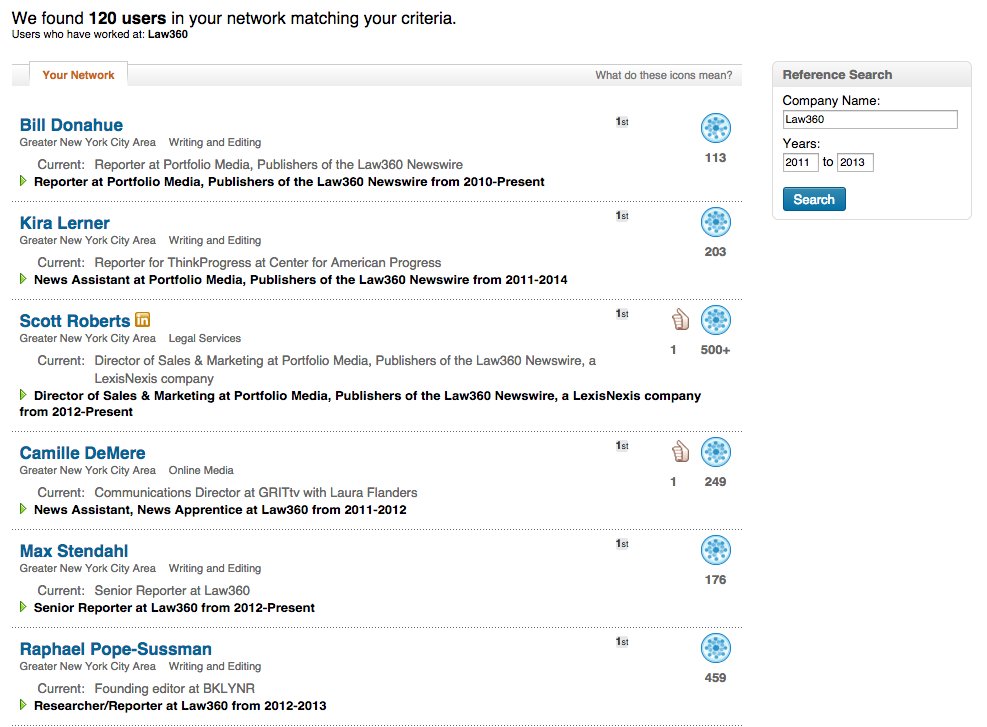
By Aaron Taube
If you are one of the more than 300 million users on LinkedIn, it is possible that the professional networking site helped to find a job.
But a recent case shows a feature of the site that could have the opposite effect.
In a proposed class action lawsuit filed last month, say four lead plaintiffs was their job search LinkedIn "homing" a product website offers Premium Members disabled.
Search reference books that are a manager or company hires a list of people in your LinkedIn network, whose profiles they show already with a person of the company you are considering have worked setting.
The personnel manager can then order on the list to reach the "InMail" LinkedIn people and their opinion about the job candidate.
In theory, this function could disadvantage candidates in the selection process under references out of his hands, open to criticism from colleagues who had not initially agreed to will give a positive review.
It also creates a scenario in which the potential employer could a list of people with a history of inaccurate employment in their LinkedIn profiles do not work closely with the accession of work, or otherwise qualified, the opportunities to discuss candidate.
For example, a review by Forbes journalist Susan Adams found a reference in your search yielded the names of 62 people who knew in a company at the same time, but only two or three of them enough to give an accurate assessment of performance.
This is what I found when I relate the search for people to find me at a previous employer operates:

Besides being potentially harmful to the prospects of job seekers, LinkedIn is four users, the "search by keyword" product demand illegal in the United States.
The class action proposal was filed last month in California and states that the product violates the Fair Credit Reporting Act (FCRA), designed a 1970 law to refuse people from unfair mortgage, credit, or employment to protect Based on a background check or credit report.
According to a document released by the Federal Trade Commission of the USA, the FCRA gives people the right to know when they denied a report based on a background investigation and dispute any inaccurate information in the report on its work.
The lawsuit alleges that LinkedIn to Dulce, one of the lead plaintiff, was of a hotel company that had decided to tell him rent for a job that was asked on LinkedIn. Soon after the company appeared sweeter than had changed his mind. Dulce asked why, said the company made its decision on the basis of a number of soft references it was not planned according to the complaint.
The plaintiffs claim to tell against the FCRA LinkedIn no companies have to notify applicants if they get a job because of the information lost by Reference.
LinkedIn spokesman Joe Roualdes Business Insider said in an e-mail that the company planned to fight the lawsuit, adding that reference Search only organize the information that your users have already decided to go public.
"I want A search of the reference, which is only to premium account holders allows easy one researcher to people in your network who have worked for the same company in the same period as a member localize to know more," said Roualdes.
James Davidson, an attorney representing the plaintiffs, declined to comment.
(H / t The New York Times )

No comments:
Post a Comment